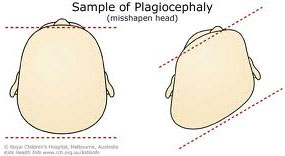Hi Dr. Rassman. You’ve talked about the FDA cracking down on “false advertising” in the past, specifically on labels. I was wondering why Head and Shoulders can put on the front of their bottle “Improves Hair and Scalp Health Guaranteed”. This is a loosely based statement lacking specifics; i.e. how it improves my hair or scalp health. I can understand it clearing up dandruff, hence improved scalp health, but hair?
People may associate improved hair health with thicker, stronger hair which I believe no magic shampoo has been factually proven to do so.
I asked FDA consultant Norman F. Estrin, PhD, Managing Partner at Estrin Consulting Group LLC, to answer this one. The following response was what he sent me —
 “Improves Hair and Scalp Health” is a claim that the FDA would call “puffery”. Puffery is allowed for cosmetic claims. You correctly pointed out that it is a loosely based statement lacking in specifics”. This is characteristic of puffery. It just as easily could have said “livens up your hair” even though we all know hair outside the body is not alive.
“Improves Hair and Scalp Health” is a claim that the FDA would call “puffery”. Puffery is allowed for cosmetic claims. You correctly pointed out that it is a loosely based statement lacking in specifics”. This is characteristic of puffery. It just as easily could have said “livens up your hair” even though we all know hair outside the body is not alive.
Head and Shoulders is an OTC drug because it treats dandruff. It is also a cosmetic as well and its cosmetic claims are regulated by the FDA Office of Cosmetics and Color Additives, while the drug claims are regulated by the Center for Drug Evaluation and Research (CDER). The Federal Trade Commissions also monitors fraudulent claims, especially in advertising. Here are some other examples of puffery:
- Best shampoo ever!
- Energizes your hair
- Eye awakening
- The skin you want
- Safeguards your beauty
- Age Control
- Helps restore youthful zones
- New life for your hair
Since these claims are qualitative descriptions rather than hard facts, the FDA cannot regulate such claims because they are so hard to define. If, however, a cosmetic company claimed “Proven to increase collagen synthesis”, the cosmetic company would be in trouble because any product that does so would meet the FDA definition of a drug:
“(A) articles intended for use in the diagnosis, cure, mitigation, treatment, or prevention of disease
(B) articles (other than food) intended to affect the structure or any function of the body of man or other animals”
In this example, increasing collagen synthesis in the body would be an effect on the “structure or any function of the body of man”.
Tags: product labels, fda, shampoo

 You’re right that once you discontinue Propecia (finasteride 1mg) treatment, your hair loss resumes. For me though, since I originally had crown loss, I tried finasteride to see if I could increase the hair in the crown. At that point, my crown was clearly stable and I did not gain anything from the finasteride.
You’re right that once you discontinue Propecia (finasteride 1mg) treatment, your hair loss resumes. For me though, since I originally had crown loss, I tried finasteride to see if I could increase the hair in the crown. At that point, my crown was clearly stable and I did not gain anything from the finasteride. “Improves Hair and Scalp Health” is a claim that the FDA would call “puffery”. Puffery is allowed for cosmetic claims. You correctly pointed out that it is a loosely based statement lacking in specifics”. This is characteristic of puffery. It just as easily could have said “livens up your hair” even though we all know hair outside the body is not alive.
“Improves Hair and Scalp Health” is a claim that the FDA would call “puffery”. Puffery is allowed for cosmetic claims. You correctly pointed out that it is a loosely based statement lacking in specifics”. This is characteristic of puffery. It just as easily could have said “livens up your hair” even though we all know hair outside the body is not alive.  I don’t recommend Viviscal, as it hasn’t been proven to my satisfaction to treat hair loss. It also isn’t FDA approved, as it is just regarded as an over the counter supplement. The key ingredient appears to be a marine protein extract, so if you’ve got a fish allergy you should steer clear. Another key ingredient is vitamin C. While the product might help nourish your hair, I don’t know that it would treat hair loss, particularly if it is genetic in nature. Otherwise if you wish to use it, that is your choice to make.
I don’t recommend Viviscal, as it hasn’t been proven to my satisfaction to treat hair loss. It also isn’t FDA approved, as it is just regarded as an over the counter supplement. The key ingredient appears to be a marine protein extract, so if you’ve got a fish allergy you should steer clear. Another key ingredient is vitamin C. While the product might help nourish your hair, I don’t know that it would treat hair loss, particularly if it is genetic in nature. Otherwise if you wish to use it, that is your choice to make. For those that aren’t familiar with
For those that aren’t familiar with  Read the full story —
Read the full story —